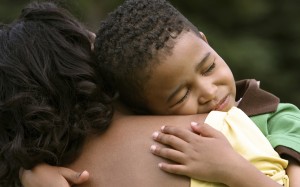
A mom in my office today had an epiphany after her adopted son beautifully verbalized his deep-seated belief that he is unloved and unlovable. She said, “I think I have read too many books on RAD (reactive attachment disorder) over the years that told me that RAD kids manipulate and parents must stay in control of them. I think what my son really needs is to be smothered in love.”
When many professionals think about attachment therapy, they still think about a therapy involving forced holding or aggressive confrontations. The diagnosis of RAD also brings up a picture of a child who is rage-filled and driven by a need to control and manipulate in the minds of many. These ideas were widespread through the decade of the nineties. The extreme approaches to Reactive Attachment Disorder were probably a reaction to the extreme behaviors observed in children with a history of changes in caregivers and early maltreatment. The science of the brain and research in the field of trauma has helped moved the field of attachment therapy beyond this earlier thinking, and understand the behaviors associated with RAD as a natural and expected response to early maltreatment by caregivers and traumatic loss.
Children with a history of attachment trauma are wired for survival, and children with a “survival brain” are constantly reacting to the world around as threatening and dangerous. They understandably view attachment figures as untrustworthy and undependable, and they cannot imagine being loved or feeling lovable. As parents and professionals, we become more effective in healing and helping our hurt children when we understand the emotions underlying their challenging behaviors.
